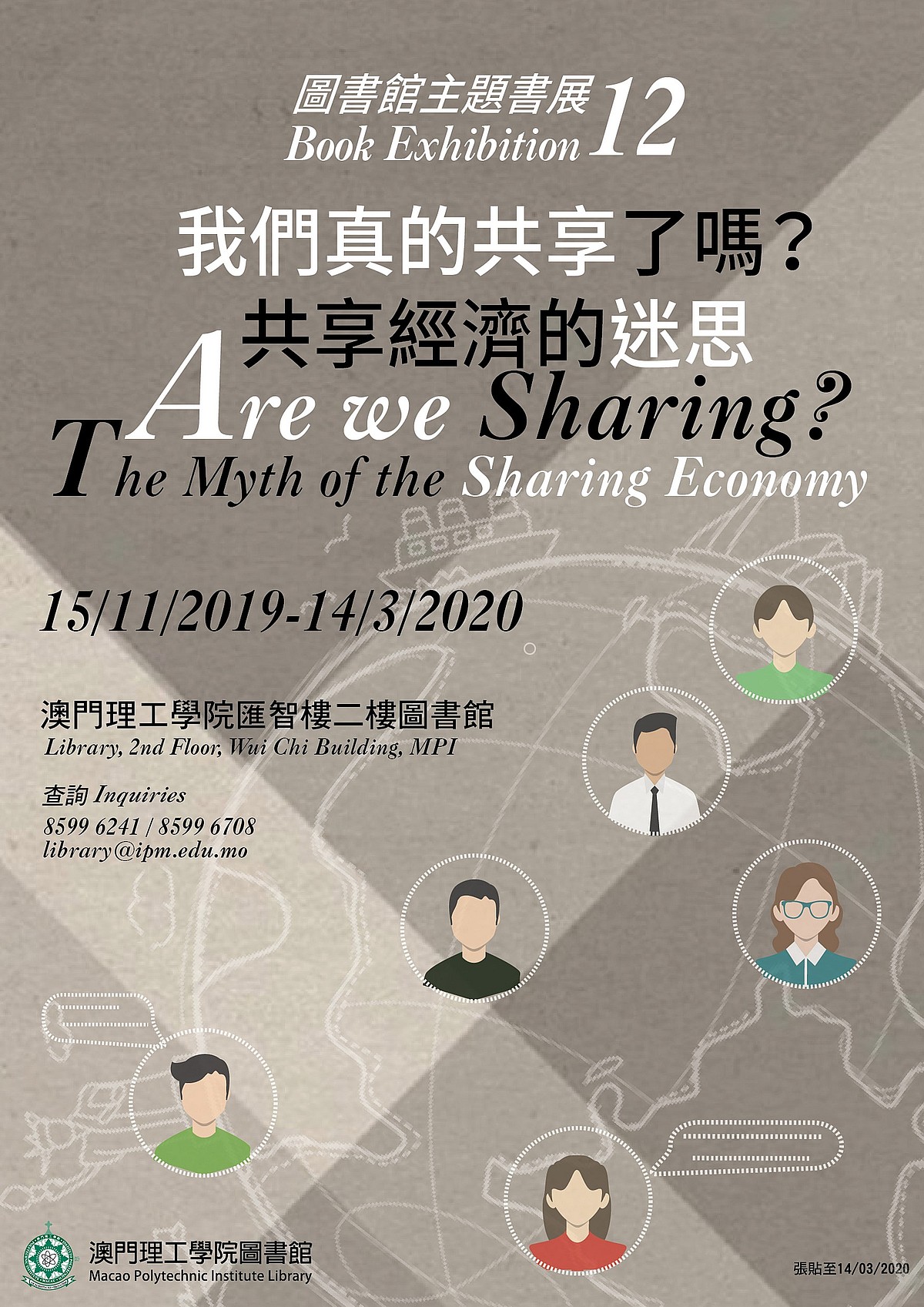LIBRARY BOOK EXHIBITION 12
 Processing Request
Processing Request
Book Exhibition XII
Are We Sharing? The Myth of the Sharing Economy
15/11/2019 - 14/03/2020
Library, 2nd Floor, Wui Chi Building, MPI
The Sharing Economy has no doubt become a familiar vocabulary. But it really started to enter the mainstream in 2013-2014. It tries to help us to make better use of underutilized resources—why does everyone need a power drill when we could share? We can buy less and so lighten our footprint on the planet—maybe use Uber rather than buy a car? We can choose access over ownership, and move away from a consumerism in which many of us feel trapped. We can be less materialistic, looking to experiences rather than possessions to give meaning to our lives. All of this seems to be ideal, but there is a contradiction built into the name "Sharing Economy".
We think of sharing as a non-commercial, person-to-person, social interaction. It suggests exchanges that do not involve money, or that are at least motivated by generosity, by a desire to give or to help. "Economy" suggests market transactions— the self-interested exchange of money for goods or services. Some scholars are showing concerns about the Sharing Economy: "The Sharing Economy is extending a harsh and deregulated free market into previously protected areas of our lives. Some sharing economy companies are now grouping giants, and they are increasingly interfering with the trading activities they support in order to make money and maintain their brands."
Sharing Economy appears to be growing away from the "Sharing", it more like a kind of leasing, an "economic" activity for profit purposes. The Sharing Economy may be new, but it does have a history and a context, we need to explore more to understand its. Let us learn more about the concept and current situation of the sharing economy through the Library collections.
Further Reading Materials
- Forbes-- The Sharing Economy - What It Is, Examples, And How Big Data, Platforms And Algorithms Fuel It
- Warwick Business School-- How to rebuild trust in the sharing economy
- World Economic Forum -- 4 big trends for the sharing economy in 2019
- World Economic Forum -- The dark side of the sharing economy
- World Economic Forum -- Does the sharing economy truly know how to share?
- Peers

